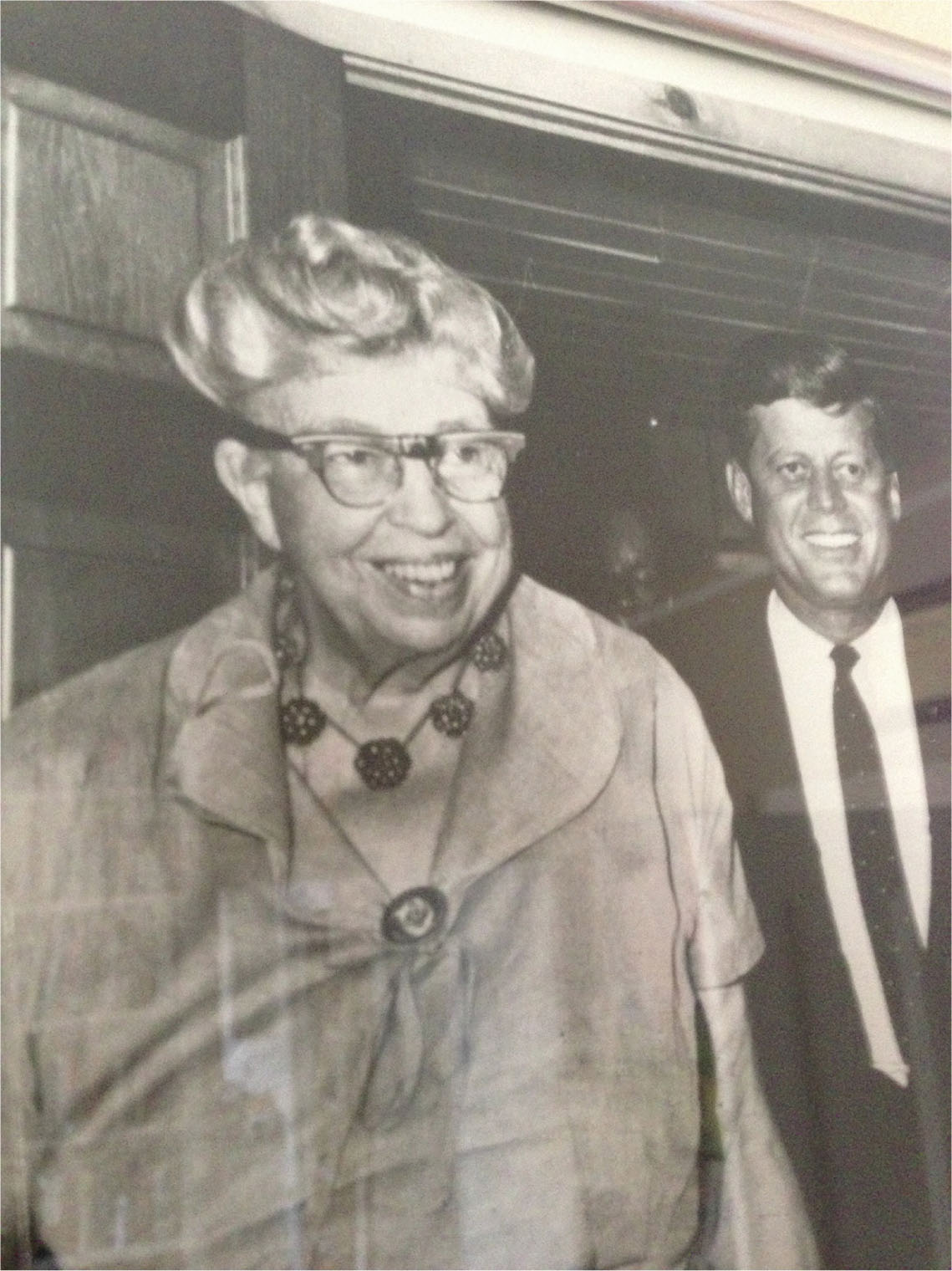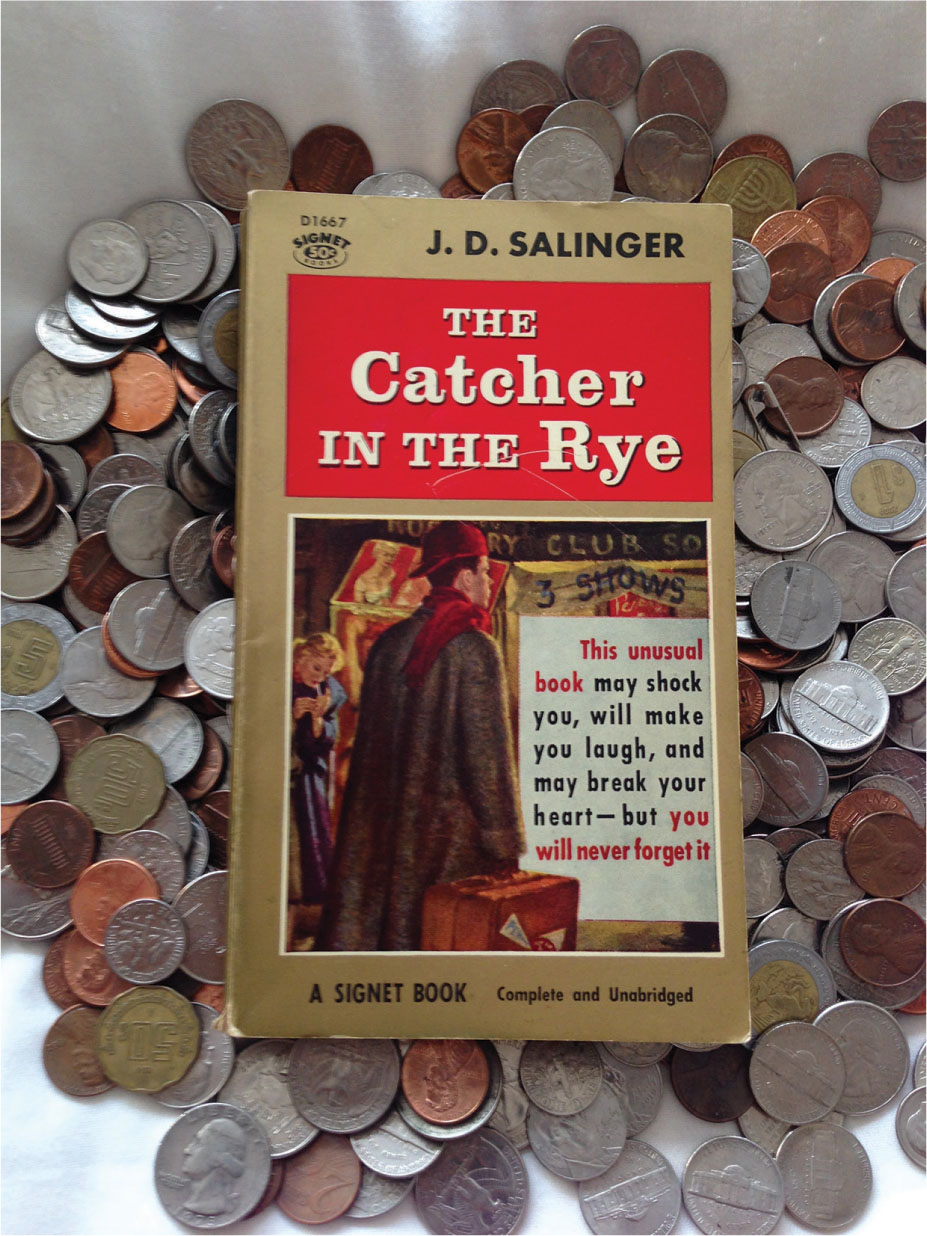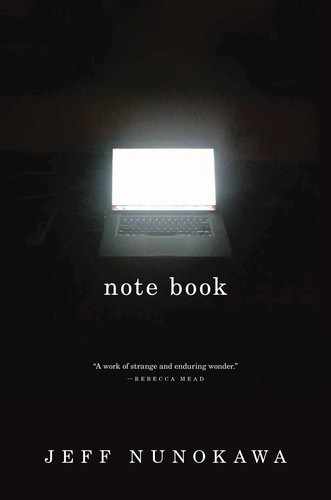4479. “Nature’s first green is gold”
Nature’s first green is gold,
Her hardest hue to hold.
Robert Frost, “Nothing Gold Can Stay”
Isn’t that just the way with most hues held dear? Hard to tell sometimes: Not knowing they’re going before they go is a regular part of the deal.
Note: “The tendre croppes” (Chaucer, “The General Prologue”).
4481. “her lovely, deliberate blandness”
When Eleanor Roosevelt came to see [JFK] at the White
House, he insisted that she allow him to show her her
old home. As they were about to leave his office, he
motioned for her to precede him through the door.
Mrs. Roosevelt drew back. “No,” she said.
“You go first. You are the President.”
He laughed. “I keep forgetting.” With her lovely, deliberate
blandness, she replied, “But you must never forget.”
Gore Vidal on Eleanor Roosevelt,
“John Kennedy: A Translation for the English”
What are we to make of this parable? Well, for one thing, this: when we occupy offices where we are responsible for setting an example (President, Teacher, Citizen, Mother, Minister, Mentor), we should never entirely forget that responsibility, even when we want to, and even when we think no one else is looking. Setting an example for others requires constant and consistent practice. Setting an example for others requires constant and consistent regard for a standard of character larger and higher than our individual selves.
I gather this is what Mrs. Roosevelt sought to remind the glamorous and insouciant-seeming young man who had assumed a position of indisputably awesome influence.
But I do not think the teaching stops there. For those of us enamored by what appeals to our eyes because it appears to be the opposite of blandness—signature-making surface styles of quickness, sharpness, and shimmer—there is another lesson to be learned, one that relates to and reinforces the first. That lesson is this: a force of charisma may adhere to the most conventional-seeming people and propositions, a force that renders vivid and vivacious the particular personality of the person and the proposition at the very moment when it is most concerned with constituting itself as nothing more than the conveyor of a commonplace—her lovely, deliberate blandness.
Her lovely, deliberate blandness: Mrs. Roosevelt neither sought nor gained a reputation as a clothes horse. Still, I cannot help but hear, in this phrase that so admires her, the love of a poet at the sight of his girl in silks. There she is, somehow surpassing, while fully inhabiting, the splendid but, for its day, standard fashion she has put on—there she is, that brave vibration each way free (Herrick, “Upon Julia’s Clothes”).
Note: “Thus fashion represents nothing more than one of many forms of life by … which we seek to combine … the tendency towards social equalization with the desire for individual differentiation” (G. Simmel, “Fashion”).

4483. “Men who die childless … are denied an ancestor shrine”
… only those who have children born to their name
Jack Goody, Death, Property and the Ancestors: A Study
of the Mortuary Customs of the Lodagaa of West Africa
You know what? I can live with that. Not everyone in the whole, wide world needs an ancestor shrine—which is just as well, since, given the scarcity of space, there probably isn’t room enough for everyone in the whole wide world to have one. (I have to think this is especially true, nowadays, what with women’s lib and changes in eligibility requirements, the number of ancestors entitled to shrines has greatly increased. And the situation can only get worse: There’s probably some mathematical formula to figure out the proportions of the possible proliferation of shrines, but I’m no good at math. Still, even I can see how the world could get so overpopulated with them that you wouldn’t be able to get across the street to get a cup of coffee or something, without tripping over a few. It could be a real problem.)
So, like I say: not having an ancestor shrine: I’m fine with that. The way I see it, I’ll get lost in the crowd instead. (I’ve always loved a crowd.)
I’ll be lost in the crowd.
And found there as well.
Note: “Men can die without anxiety if they know that what they love is protected from misery and oblivion” (Herbert Marcuse, Eros and Civilization).
4490. “For our vines have tender grapes”
O my dove, that art in the clefts of the rock, in the
secret places of the stairs, let me see thy countenance,
let me hear thy voice; for sweet is thy voice, and thy
countenance is comely. Take us the foxes, the little foxes,
that spoil the vines: for our vines have tender grapes.
Song of Solomon 2:14–15
I used to be afraid that the things I loved (the poems and the people I somehow thought could make my dreams come true), I loved too hard. And I was right to be afraid: there was a drive to argue embedded in my loving, a drive hard enough to smash and spoil whatever sweetness lay in the original intent. I got into so many Huge, High Arguments over what I loved, and got so into winning those arguments, that I didn’t even notice, until it was too late, that I had laid to waste the tender feelings I was arguing over—like destroying a village in order to save it.
I’d like to think that’s mostly over now (along with the dream of most dreams coming true). Now I want to try to tend to what I love in ways less intent on getting something out of them (more involved with giving something to them).
Who knows what crops will come back once the desert foxes have been laid to rest?
Note: “My fall knocked a mean chip out of me” (R.E.M.).
4492. “Sincerity”
Sincerity is an essential part of his method of
depicting his own random life in its entirety.
Erich Auerbach on Montaigne, “L’Humaine Condition,”
Mimesis: The Representation of Reality in Western Literature
You start out saying you’ll stay true to a lot of things: your flag, your friends, your family, your finer self. And you do an okay job doing so, but let’s face it, as my mother always says. (By the way, that’s one of her favorite formulas: I wonder where she was the first time she said it; I wonder to whom she said it, that first time, and why. Maybe she was breaking up with a boyfriend—like the guy from Colville, Washington, who stood her up at the high school homecoming where she was crowned queen. “Oh, he had some feeble excuse, but I cooled on him after that,” she says. It makes me think of a few feeble excuses I’ve made myself—okay, maybe more than a few—ah, but I digress).
Anyway, let’s face it, when it comes to staying true, we fail as much as we succeed. We try to be faithful where we’ve offered our faith, but things change so fast (or so slowly) that we don’t even notice all we’ve forgotten—sometimes it feels like almost everything. (It’s like what my father always used to say, before he forgot to say it: “I’ve already forgotten twice as much as what you know.”)
Sometimes keeping a promise to stay in touch proves as hard as governing hormones or harmony or your power to hear a call for help. Keeping a promise to stay in touch can be as tricky as staying on a single subject in a sentence or an essay whose only intention is to let someone know that we want to be in touch with him. We meant—well … we meant well.
Then sincerity comes to save the connections. Like charity, being true begins at home, and brings us back there, too. To thine own self be true: and just by being so, you’re true to others as well.
Then even I’m sorry, I can’t be with you means in some way you can.
Then every departure can be a way of staying near.
Note: “I hope that my study will reach its readers. … And may it contribute to bringing together again those whose love for our … history has serenely persevered” (Auerbach, “Epilogue,” Mimesis).
4493. “Fallings from us, vanishings”
… for these I raise
The song of thanks and praise;
… for those obstinate questionings
Of sense and outward things,
Fallings from us, vanishings;
Blank misgivings of a Creature
Moving about in worlds not realized,
High instincts before which our mortal Nature
Did tremble like a guilty thing surprised.
Wordsworth, “Ode: Intimations of Immortality
from Recollections of Early Childhood”
For these? Really? For these offshore, extralegal, totally unreviewable interrogations I’m supposed to feel grateful? My God! Really?
I get how I’m supposed to be grateful and praise all the livelong day. It’s like what an Indian friend said to me in graduate school. I was talking about how I felt “sorry” for some professor. I’m not sure I really felt sorry for him, but it seemed like a good thing to say at the time. “Why? He’s got a wife. He’s got kids. He’s got a job. He’s got a house. He’s got a car. Why do you feel sorry for him?” Now I’m a professor, and I get how I should probably be down on my knees thanking and praising every day of the week and twice on Sunday, and never be feeling sorry for myself. Well, the truth is that I do thank and praise a lot. And here’s a further truth: I am raising the song of thanks and praise, especially when I’ve been feeling sorry for myself.
Let me put it this way. I don’t know what goes on for you when you first wake up in the morning. (The truth is that I don’t know what goes on for anyone else when he or she first wakes up in the morning. I didn’t, even when I regularly saw someone else when he or she first woke up in the morning, and I certainly don’t now that it’s been longer than I can remember since I saw someone else when he or she first woke up in the morning.) So like I say, I don’t know how you feel when you first wake up in the morning, but I can tell you how I feel: Sad. Lonely. In the dark. Fearful that I’ve missed out on some natural nearness or vague dearness and nagged by the suspicion that I once had those things and somehow lost them and, to top it all off, am helpless to stop the questions about how I lost them.
It used to be so easy between us that there didn’t even feel like there was anything between us, and now I’m second-guessing every last conversation we have. What’s up with that? Do I really have to go and ruin everything I touch—everything that touches me?
And by the way, what’s with all the questions? Who’s with all the questions? These questions that have my heart in some kind of lock when I first wake up: are they my questions, or are they brought to me by someone else from far away, whom I am somehow made to serve as a vessel and a voice? And who is that “special someone” with all the questions? Are we related? Are you, by any chance, my father (Mr. Mad-Man-Math), practically a ghost now, coming at me with yet another “prisoner’s dilemma” type problem, just like you did when I was young? Only this time it’s even more vague than it was back in the day—one more missed “gift” of knowledge that just keeps on taking (sorry! I mean giving, of course)! Thank. You. Dad! I didn’t understand what the hell you were trying to teach me then, and I sure as hell don’t understand now, what with all the value and visible signs removed.
(Blank misgivings of a Creature
Moving about in worlds not realized
High instincts before which our mortal Nature
Did tremble like a guilty thing surprised)
And by the way, since you’re on me again, in the original contract, aren’t you the one who’s supposed to tremble like a guilty and surprised? Last I checked, you’re it, all ghostly and imprisoned and whipped:
And then it started like a guilty thing
Upon a fearful summons.
(Hamlet, describing the ghost of the Father)
Where was I when the vote got called to saddle my team with the guilt-project? There’s a memo I missed! I mean I know how we’re supposed to own our work and all (I hate that consultant-firm cliché, by the way—so managerial and manipulative), but since when is feeling guilty my work? What the F—
Wait. Just stop. Enough with all the obstinacy, already. We could prosecute the precedents six ways to Sunday. But let’s not. Look. Whoever you are, whoever I am, I and my mortal nature both—we’re sorry for all the misunderstandings. And we’re glad and grateful to have you back, even with all the pondering pain and confusion. My mortal nature and I, we wake up every morning feeling like we lost something big. So, I gather, Mr. Big-Boss, do you. Let’s team up together. Let’s call a truce.
Let’s call it a day.
Note: “morning’s minion” (Hopkins, “The Windhover”).
5002. “Love those for whom the world is real”
However seldom in my line to feel,
I most love those for whom the world is real.
James Merrill, “The Book of Ephraim,”
The Changing Light at Sandover
“This is really something,” a girl said last night, about the strange ceramic clown that has been part of my household for years. As alarmingly self-satisfied as the clown looks, I just know that he’s anything but. (I assume it’s a he, though I can’t say for sure: its gender does not submit to simple identification.)
If my young guest and her friends hadn’t been considerate enough to celebrate his existence, I just know that my poor clown would have spent the night (as he has spent many nights) in a state of darkness about his very being.
That clown is a parable: Think how often you and I cast about in shadows, unsure of our own being, not feeling it, no matter how game our face, like so many sad and lonely clowns or clouds or crowds, until someone quick and bright comes along to draw it out.
Where would we be without those special someones to confirm our especial existence?
Lucky for us, they’re no further away than the next real surprise.
Note: “a world which has meaning only for a consciousness” (Hazel Barnes, “Humanistic Existentialism and Contemporary Psychoanalysis,” The Literature of Possibility: A Study of Humanistic Existentialism).

5007. “Then, all of a sudden, I started to cry”
Then, all of a sudden, I started to cry. I couldn’t help it.
I did it so nobody could hear me, but I did it. It scared
hell out of old Phoebe when I started doing it, and she
came over and tried to make me stop, but once you get
started, you can’t just stop on a goddamn dime.
J. D. Salinger, The Catcher in the Rye
My best friend likes to brag that his father, a truck driver who left when everyone involved was young, could park a semi on a dime. He says it a lot because, like me, he’s not exactly the type of person who could park any kind of vehicle on a dime, goddamn or otherwise, and it makes him feel proud to be related to someone who could.
On the other hand, my best friend knows how to live with the fact that there’s no way of knowing when a lot of what moves us will come to a serious stop. (I mean a full stop—some final calm, some kingdom come.)
Meanwhile, though, he pulls over when he needs to rest and plugs what meters he can.
Believe me, he has plenty of change.
Note: Lacrimae rerum (Virgil).

I have never wished there was a God to call on—I
have often wished for a God to thank.
F. Scott Fitzgerald, The Notebooks
My father’s mother practiced some brand of Buddhism she picked up and polished over the course of a long life of working hard and feeling right. Every morning and every night, she’d go to her homemade shrine and clap her hands and produce offerings. This was how she called the Chief, she explained to me. I must have found her calling interesting, because I started doing it, too. Over and over and over again. “Dial it down,” she told me, in the mix-and-match blended language we spoke to each other: “He’s a busy guy and can only visit each caller twice a day.”
Well, like they say, the Pilgrim doesn’t fall far from the Shrine. Now, every morning, the grandson wakes up determined to call someone very far away. He wants to be in touch with a distant someone to whom he can confess his confusion or some other part of his commotion. Everyone’s gotten busier, so he only acts on the urge once a day now. As far as offerings go, instead of rice, he’s got a mess of words and pictures requisitioned from the stockpiles he’s harvested over the years.
During the call, that descendant talks about a lot of different things (maybe it’s practice for all the talking he’ll be doing later; maybe it’s penance for all the talking he’s already done).
That said, there’s really only one thing that he wants to get across to anyone who may be hearing or overhearing him. Thanks for taking me in: Thanks for that.
I hope to do the same for someone, someday.
Maybe today.
Note: “Whoever you are, I have always depended on the kindness of strangers” (Tennessee Williams, A Streetcar Named Desire).
